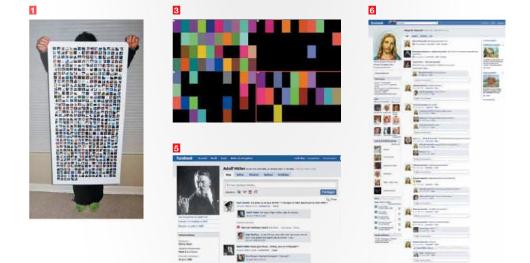

|
"L'acte de penser et l'objet de la pensée se confondent" Parménide Full Screen | Play Le contenu de ce wiki est Copyleft
|

Simplicity Theory: Why did human brains specialize in detecting abnormal order?
Jean-Louis Dessalles (School of Telecom ParisTech) Human beings devote some two hours each day on average to reporting events, through conversational narratives. This behaviour is unique in the animal kingdom. Simplicity Theory offers a formal characterization of what makes an event narratable. Interesting events (exceptions, deviations from norms, coincidences, rarities, emotional situations...) all share the property of offering abnormal order: they are less complex than anticipated. Complexity drop (simplicity) seems to be a key determining factor, not only of interest, but also of aesthetics and of emotional intensity. Why did human beings evolve a sense of simplicity?
Simplicity Theory: Why did human brains specialize in detecting abnormal order? (PART I) from Fondation Telecom on Vimeo. Simplicity Theory: Why did human brains specialize in detecting abnormal order? (PART II: Q&A) from Fondation Telecom on Vimeo. The poietic generator: A net experience for cognitive research
Olivier Auber Former research engineer, Telecom ParisTech digital-perspective.net To what extent do networks, interfaces and visualization systems transform non-instrumental human behavior, including crowd phenomena? The poietic generator is an experimental network designed to artificially create a large human crowd. It not only allows everyone to interact with all the others in real time (via the web or mobile phone), but also to continuously observe the result of this interaction in the form of a global picture. Unlike most current interaction systems (typically those offered by Web 2.0 technologies) where the global social graph remains inaccessible for commercial reasons, here everything is known or knowable, in particular for scientific research. The computability of the temporal dynamics which is observed in poietic experiments will be discussed with the help of simplicity theory (as introduced in the previous seminar by J-L. Dessalles). Other proposals for experiments or conjectures will be welcome.
« A la recherche de perspectives légitimes »
En son temps, on peut comprendre que McLuhan ait dit : « Notre planète est un village global où le centre est partout et la périphérie nulle part. », mais aujourd’hui, nos modèles de perception sculptés par les réputés "réseaux sociaux" convergent au contraire vers un nombre réduit de centres bien tangibles. Le village de McLuhan est maintenant hypercentralisé, à la fois par des serveurs et par des codes ou des normes. Chacun de ces centres tend à instituer des formes de perspective que nos modèles de perception interrogent peu ou prou : en quoi sont-elles légitimes ? C’est précisément la question posée par l’expérience dite du "générateur poiétique" ; sorte de modèle des "réseaux sociaux" actuels. Le générateur poiétique peut fonctionner sur l’internet soit suivant une perspective physiquement centralisée - un serveur synchronisant les échanges ; on parle alors d’une "perspective temporelle" -, soit suivant une autre dénuée de centre physique - un simple code ou signe de reconnaissance arbitraire faisant l’affaire ; on parle cette fois d’une "perspective numérique"- . Si tout va bien, une expérience du générateur poiétique pourrait avoir lieu pendant l’intervention. Chacun est convié à y participer, via mobile (Iphone ou Android) ou sur le web : http://play.poietic-generator.net//





Commentaires [Cacher commentaires/formulaire]
Ajouter un commentaire à cette page:
|